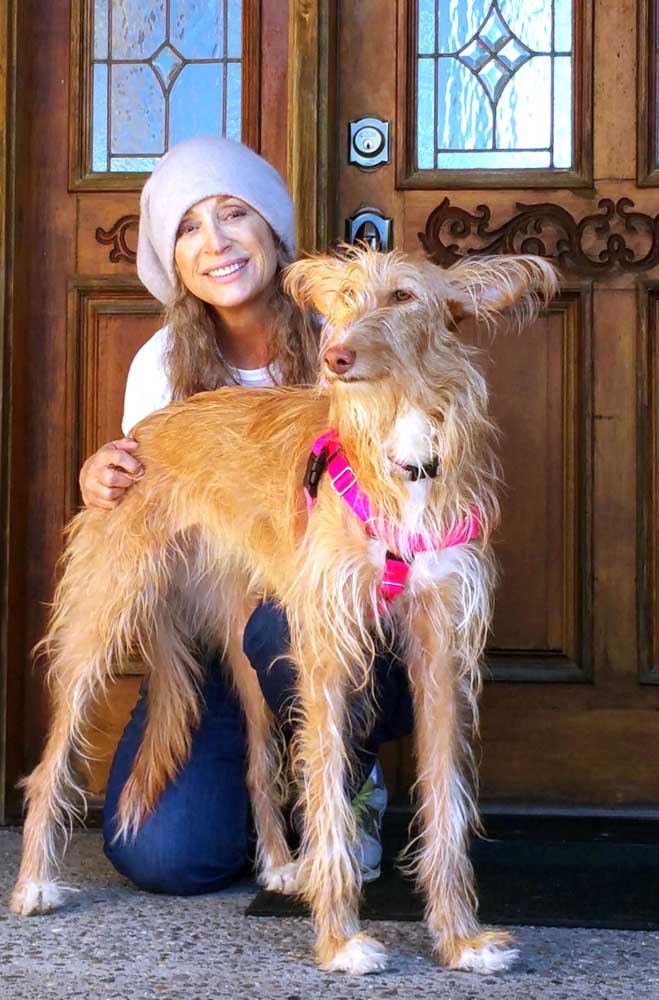Canine Corner: Setting the rules of interaction in advance
Published 2:58 pm Monday, December 9, 2019

- Rain Jordan of Expert Canine with Dahlia.
By the end of any given year, many households have gained a puppy. If your household might be one of those, now is the time to consider what, exactly, your puppy will need in order to grow into a behaviorally sound adult dog.
Most people know that socialization is necessary, but many do not understand what proper socialization is and how it is accomplished.
Uncontrolled exposure to people, often at the sacrifice of other important puppy prep such as careful introduction to a wider variety of textural, visual, and auditory stimuli, acquired bite inhibition, and anti-aversive housetraining are a few good examples.
Exposing a young puppy to novel stimuli such as people, other puppies, and a variety of items is indeed important to do before the socialization window closes. However, this facet of socialization is not a matter of letting anyone and everyone interact randomly with the puppy.
Every exposure should be carefully planned, measured, and monitored. Rather than taking your puppy out on the town and letting every person you meet approach, touch, or hold her, it is your job to be selective and protective.
Rather than shoving strange items into your puppy’s face, a wiser and more humane approach is to allow her to choose which items she wishes to explore — in a pre-arranged, controlled area. Setting rules of interaction and handling in advance goes a long way toward shielding your puppy from discomforts that lead to long-term fear or other undesirable outcomes.
The same is true for meeting and interacting with other pups. Instead of taking your young puppy to dog parks or similar, where once again the variables are random and can also be dangerous for a young pup, arrange play dates with people and other puppies you know, in your home or theirs — discussing in advance appropriate interaction and what each human’s job is during the interactions. Puppies do bite as part of their normal play, but it isn’t acceptable to have one pup attacked by another, so your keen observation and knowledge of subtle canine communication signals are crucial.
Speaking of bites: A huge part of being a responsible puppy owner is to work for acquired bite inhibition. You do this by knowing how and when to allow your puppy to bite, nip, and mouth you and when to minimize these by reshaping bite pressure. We do not teach the puppy to inhibit biting via scolding, scaring, threatening, and certainly not via corporal punishment. We guide the puppy, gently and with very specific methods, to decrease bite pressure and bite frequency over time. It is important to note this training should be done before 12 weeks of age (or 14 or 16 weeks, depending on who you ask); any biting issues occurring after that socialization window will need to be addressed via professional, anti-aversive behavior modification. It is easy to envision a correlation between improper socialization as a puppy and biting behavior as an adolescent or adult.
House-training is another realm where puppy owners sometimes make the error of employing scolding, scaring, threatening, or corporal punishment. These errors not only increase negative emotional states in developing pups, but furthermore they also negatively shape a pup’s house-training-related behaviors.
For example, if you see your puppy eliminate indoors and you scold, scare, threaten, or physically punish her for doing so, she isn’t learning not to eliminate indoors. She’s learning not to eliminate in front of you.
The next time she needs to relieve herself, therefore, she may believe that eliminating under a piece of furniture or in a remote area of the house — away from your view — is a better choice. If you do not witness the accident but employ aversives upon discovering evidence of the accident, your puppy will not understand why she is being punished; she will learn that you are an unpredictable, possibly frightening, potentially even dangerous presence in her world. Better to gently show her where elimination happens and put elimination on cue, reinforcing every success with high value food.
You only get once chance to positively shape your pup’s future well-being via proper socialization. For the best possible success, employ the guidance of an anti-aversives, certified canine behavior consultant or trainer.
Rain Jordan, CBCC-KA, CPDT-KA, KPA CTP, is a certified canine behavior and training professional. Visit her at www.expertcanine.com.


